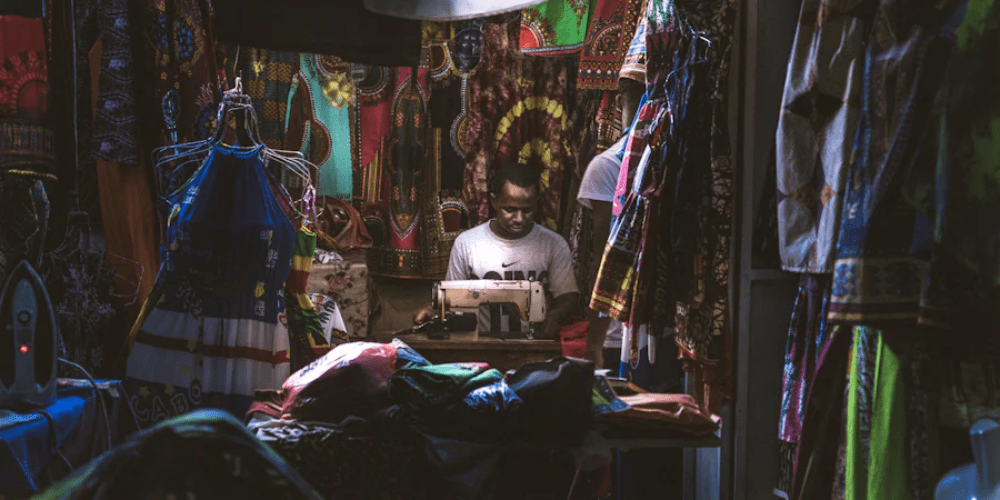Support those brave souls who start businesses

So many hopeful souls start new businesses every year. Whether it’s a tiny single-person venture, or a well-funded startup, new firms come teeming into existence. Some studies suggest that at least 100 million new businesses are created annually around the world.
That’s good, right? These businesses should meet genuine needs in the market; make the lives of their customers better; create employment and livelihoods; build economic security for their founders and their families; and contribute to the national tax revenue that funds essential services for citizens.
Sadly, a different bunch of statistics reveals the other side. Most of these businesses just don’t make it. Depending on where you are in the world, between a fifth and a half of them will be gone in year one; and fewer than 50 per cent will celebrate their fifth birthdays. The business landscape, it turns out, is mostly tombstones.
This mortality rate, while alarming, shouldn’t surprise us. Businesses, like organisms, are inherently vulnerable. They are susceptible to a myriad of internal and external threats that can cripple their operations and lead to their demise.
Today, let’s focus on one of the most insidious external perils. Across Africa and beyond, the spirit of entrepreneurship often gets snuffed out by the misguided and heavy hand of governments. Far from being hospitable to business, many governments–at national and local levels—are downright hostile. Even the most resilient entrepreneur can struggle to survive the hellish ordeal that awaits.
First, regulatory regimes become opaque and onerous: multiple licenses; multiplex permits; multifarious agencies; endless form-filling; exorbitant fees. Next, the taxation mountain must be climbed. The many bites that both national and county rulers take out of the pie are often both excessive and unwarranted. In addition, taxation seems to become ever more complex and unpredictable, making it difficult for businesses to plan and invest for the future.
If that wasn’t enough, an even more rapacious beast awaits businesses: corruption. Extortion and graft add extra layers of cost and risk, eroding trust and creating an uneven playing field. Those willing to pay the bribes get to win, and they are rarely the ones with the best ideas or proper wherewithal. Over time, the better entrepreneurs are squeezed out of the system.
Talk to the average founder about the business environment in these parts, and you will hear tales of daily woe. It is hard enough to outdo competitors and to keep serving customers well, without having to fight your own government as well.
Why are we like this? Those who start businesses, whether it is a tiny informal artisanal venture or a slick new startup that’s spotted a gap in the market, are not adversaries of the state; they should be its allies. They should be given every encouragement, in the form of simple regulation, low and predictable taxes, and reliable surrounding infrastructure. They should not have the minions of government perched on their shoulders like vultures pecking viciously. An entrepreneurship engine in any economy is a great boon. The energy and adaptability of the average hustler is rarely going to be found in any government venture. So why would you kill this natural phenomenon? This is a species to be protected, not hunted down.
Sure, businesses absolutely must be regulated, otherwise the worst versions of greed will be our lot, and we will reap only the rampant exploitation of people and planet. Sure, businesses must pay taxes, so that we can build roads and provide security for all, and so that the poor are not left languishing in the mire without any meaningful life chances. But those regulations and taxes should be simple to understand and easy to comply with. And they should not be used to engorge a few parasites whose only productive endeavour is to leech off the sweat and ingenuity of others.
Many governments get this. Singapore offers transparent and efficient regulation, low taxes, and robust infrastructure, and gives grants to support innovation and entrepreneurship. Denmark invests heavily in both education and research in order to create a skilled workforce and generate fresh business ideas. Mauritius, Rwanda and Morocco have made credible recent strides in creating conducive business environments.
The best states regard honest, organic business activity as a gift and a blessing. They take pride in those folks willing to risk their own capital and sit patiently in stalls, shops, warehouses and factories, serving the citizenry. They reward those who follow regulations and pay their dues. They train regulatory watchdogs and tax collectors to be vigilant, but always to favour business survival, not extinction. They favour genuine entrepreneurs and throttle tenderpreneurs.
It takes a lot to be an audacious risk-taker who sets off optimistically to start a venture. These weavers of dreams are the lifeblood of the economy. It is because of their zeal and persistence that ideas become products, passions become paychecks, and communities start to feel the thrum of economic activity. Food gets put on tables, clothes onto backs, roofs over heads. To stifle these brave souls is to suffocate our own shared prosperity.
(Sunday Nation, 18 August 2024)

Buy Sunny Bindra's new book
The X in CX
here »
Popular Posts
- Where are you rushing to—your funeral?June 29, 2025
- How to spot a real thinkerJune 15, 2025
- The pause that saves usJune 8, 2025
- Built the app, forgot the flowJune 22, 2025
- The map will appear—once you start walking.July 6, 2025















